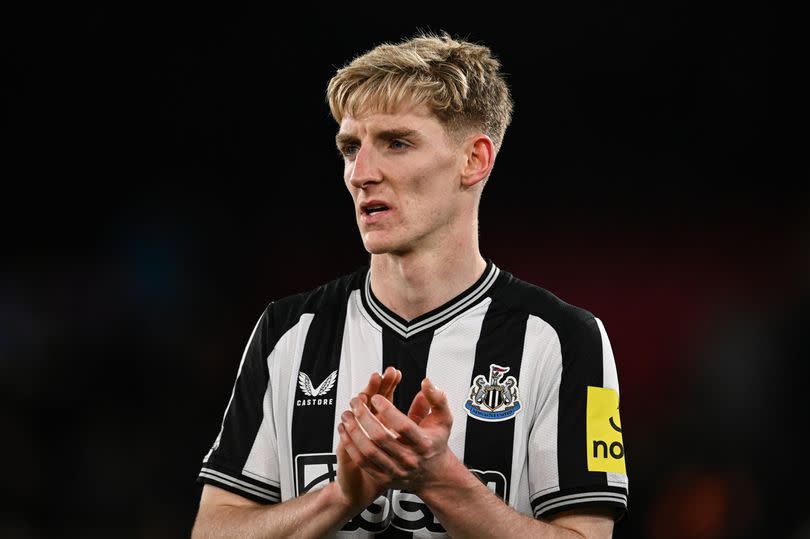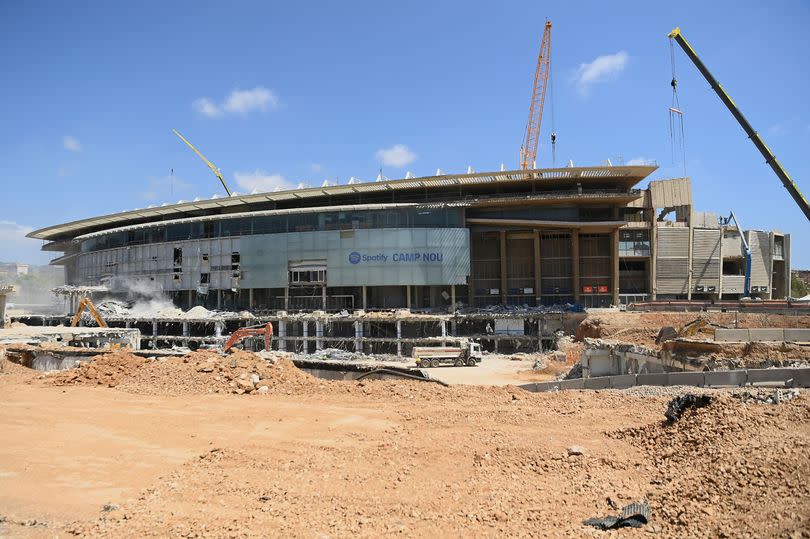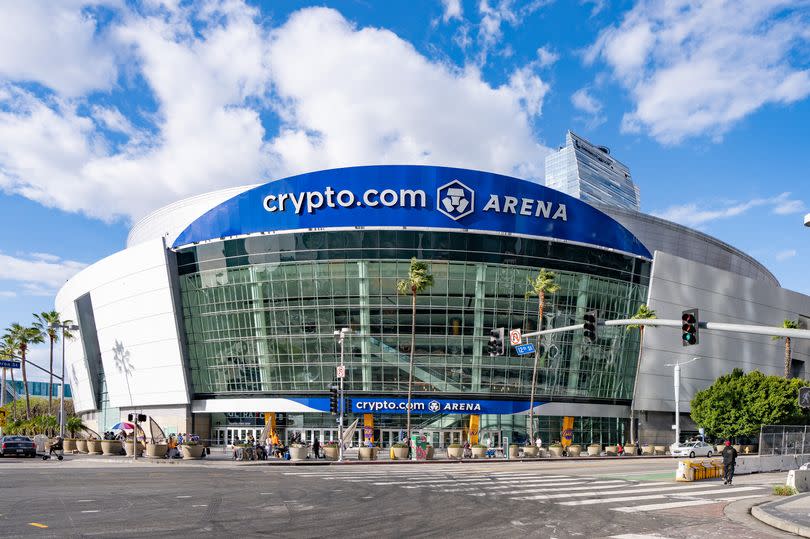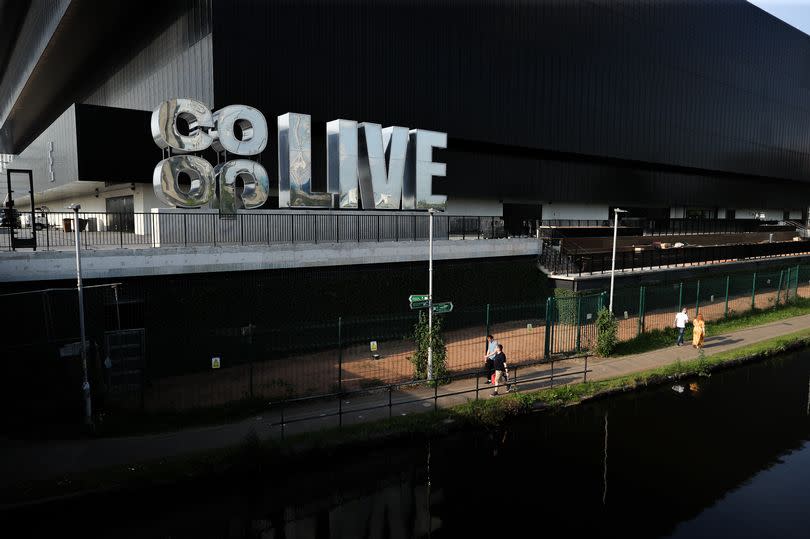Newcastle could make $640m deal after Anthony Gordon scare and it would ask Liverpool question

Selling stadium naming rights is hardly breaking news in the world of football. But for Newcastle United, it could represent a major windfall.
The Premier League has its fair share of examples, with the AMEX Stadium (Brighton), King Power Stadium (Leicester City), Emirates Stadium (Arsenal), Etihad Stadium (Manchester City) and Vitality Stadium (Bournemouth) standing out. Except for the Vitality, these name changes occurred alongside a move to new grounds, making it easier to break from tradition.
Newcastle isn't unfamiliar with this trend either. In 2009, under Mike Ashley's ownership, it briefly rebranded its iconic home to sportsdirect.com@St James' Park.
READ MORE: Liverpool transfer news LIVE: Gleison Bremer 'bid', Anthony Gordon mindset, Leny Yoro situation
READ MORE: Arne Slot stops Jurgen Klopp tradition as new manager puts stamp on Liverpool training
The saga continued in 2011 when it was renamed the Sports Direct Arena, as then managing director Derek Llambias highlighted the financial benefits of such deals.
Llambias said in a statement: "Our aim for Newcastle United is to continue to deliver success for the fans and everyone associated with the club. We must make this club financially self-sufficient in order to deliver that success."
He added, "To grow sustainably and allow us to invest in our future, we will need to rely increasingly heavily on commercial income. Stadium rebranding offers a lucrative way for clubs to secure significant additional income."
However, the decision didn't sit well with supporters. So much so, that when Wonga.com took over the shirt and stadium naming rights in 2012, they chose to restore the St James' Park name.
The landscape at Newcastle has undergone a seismic shift. The Saudi Arabian Public Investment Fund's (PIF) takeover of the club in late 2021 marked the dawn of a new era, but despite being backed by one of the globe's wealthiest sovereign wealth funds, the club is still constrained by the Premier League's financial regulations when it comes to transfer dealings.
To ensure compliance with the League's profit and sustainability rules (PSR), significant player trading had to be conducted on the last day of their financial year. That even saw Liverpool offered Anthony Gordon.
The PSR, coupled with stricter controls over associated party transactions - which could have been a key tool for Newcastle to boost commercial revenues and alleviate PSR concerns - means that the club hasn't been able to capitalize on its Champions League qualification. As well as Gordon, It faced the potential loss of other star players too, like Alexander Isak and Bruno Guimaraes, due to financial restrictions in June.
However, the potential for stadium naming rights at St James' Park remains an untapped resource, with no moves made by the PIF so far. But as financial pressures on football clubs continue to mount, and the odds are perceived as stacking against those aiming to close the gap on the 'big six', will there ever be a time when such a move would be more acceptable to fans, and just how valuable could it be?
In Spain, Barcelona didn't shy away from controversy when it sold the Nou Camp's naming rights to streaming behemoth Spotify. The deal could have been more lucrative if Barcelona had more fan data, a factor that Spotify prioritizes and which impacted the overall value.

There's no question that Newcastle United could secure a hefty sum from a potential naming rights partner on a multi-year contract, possibly with Middle Eastern ties, given its status and the sport's increasing globalization. The Chronicle Live gives an estimate as high as $640m (£500m/€591m).
This is especially true as interest in 'soccer' grows in regions like the US, where the Premier League's TV deal accounts for 20 per cent of all global broadcast revenue for the most recent cycle.
Tottenham Hotspur's relocation to a new purpose-built stadium at its old White Hart Lane site in 2019 saw it move into one of Europe's most advanced football venues.
The construction, costing over £1.2bn with £800m debt still on the books, led the club to explore stadium naming rights early on. Potential partners like Google were mentioned, but due to Spurs chairman Daniel Levy's reputation for securing good deals, the club is believed to be standing firm on its valuation of such a sponsorship opportunity.
Levy has previously discussed the potential benefits of retaining the Tottenham Hotspur Stadium name, rather than selling the naming rights to a company. This could have a significant impact in emerging markets, particularly as the stadium hosts annual NFL regular season games.
However, success in the US market cannot be automatically replicated in the UK.
In 2019, financial firm SoFi secured the naming rights to the home stadium of the Los Angeles Rams and Los Angeles Chargers in a colossal deal worth over $600m for 20 years. In 2021, Crypto.com shelled out $700m to acquire the naming rights of the former Staples Center, home to the Los Angeles Lakers and Los Angeles Kings.

The Los Angeles Clippers are set to open a new purpose-built arena in Inglewood in 2024, with the rights already sold to Intuit for $500m.
California, where Los Angeles is located, boasts a GDP larger than France, India, Italy, and Brazil. It houses some of the world's largest companies, generating billions of dollars in revenue annually.
There is a trend in the US for major local firms to snap up stadium rights. With limited opportunities for front-of-shirt sponsorships across major North American leagues - although small jersey sponsorship patches are now allowed - and relatively clean in-stadium branding in US sports, stadium naming rights hold considerable appeal.
Speaking to the Bottom Line earlier this year, Daniel Haddad, head of commercial strategy at global sports agency Octagon, explained: "It's a completely different mark in the US, and I think one of the big mistakes that a lot of European clubs or sports entities make is actually trying to draw a comparison on the value of a stadium naming rights deal in the US and trying to translate it into what that could mean in Europe.
"Essentially, the key difference is that if you look at traditionally how sports teams are able to sell their assets in the US, they don't have to share, they don't have the kind of other highly visible points of entry.
"The market in the US is almost kind of trying to accommodate those with jersey patches, etc. But it's always been in the US that stadium naming rights is the top-tier asset in terms of brand recognition and exposure.
"There isn't the same extent of field signage in the US. If you watch an NFL game it is pretty much a clean environment from a stadium branding perspective.
"Obviously the model there is different and you get a lot of a lot more brands integrated in the broadcast spotlight as in sponsored segments on CBS or ESPN, but the actual playing environment is a lot cleaner."
"Crypto.com is actually one of the exceptions to this, but mostly stadium naming rights are purchased by a massive business located in that state. So, if you look at most of the stadium naming rights deals in the US, the corporation would usually be a US company with its headquarters in that state.
"The economies of these states can be massive. California is bigger than the UK economy, and in every state you have multiple businesses. The signature is billion-dollar revenue businesses that can afford that as a marketing expenditure. So, that's why it's a different market.
"The other thing to consider is that it's always hard to sell a stadium naming rights deal outside of the US when it's not a multi-purpose, 365-day-a-year venue.
"If you look at in the UK, for instance, even like the Co-Op Arena in Manchester, that was sold before it was constructed because that isn't a football stadium with a limited number of home games where the brand is present and then competitions like the Champions League on the calendar, where there is limited reference to the stadium naming partner and branding is taken over by UEFA sponsors."

It's worth noting that various clubs here in the UK have hopped on the bandwagon of selling stadium naming rights - Arsenal bid farewell to Highbury to lock heads with Emirates in a long-term deal, Manchester City's ground is known as Etihad Arena, Brentford goes by the Gtech Community Stadium, and Brighton and Hove Albion strut around in the AMEX Stadium.
All were new builds, unbound from the traditions that stopped the selling of rights previously, while three of those four teams have alignment across major shirt sponsorship and stadium sponsorship, with Arsenal, Manchester City, and Brighton's front-of-shirt sponsors the same as the stadium naming partner, limiting the dilution of rights and brand visibility.
Said Haddad: "For sponsors, you've got the 19 matches in the Premier League and then a domestic cup. There are no rights around the Champions League or Europa League.
"Let's say, for example, that a club hosts games in the Euros or World Cup, the commercial rights don't don't apply. So actually, the frequency of exposure for brands in these areas is a bit more diluted than you might initially think.
"It's why something more ubiquitous like a shirt deal is always there as commercial partners now how much value and exposure they are getting."
Newcastle would be able to yield higher commercial revenues to be able to funnel more money back into the first-team squad. But that would involve breaking with tradition and losing some goodwill along the way, and that is a major risk factor for ownership, regardless of the value of the deal.
Liverpool.com says: Any Newcastle stadium naming deal would have to come under scrutiny, with a potential Saudi-linked sponsor needing to pay genuine market value rather than inflating the price. But it wouldn't be a shock to see the move considered, and it would be interesting to see how fans reacted, having been so vehemently against it under Ashley.
With these deals proving big earners for many top clubs, the question will inevitably be asked again at Liverpool, given FSG's consistent drive to unlock new revenue streams wherever possible. But to the owners' credit, they have stayed away from this one, with the sanctity of Anfield not up for discussion.
This article was created with the help of AI tools.

 Yahoo Sport
Yahoo Sport 




































































